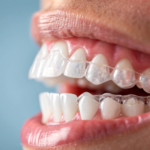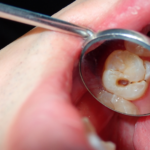Living with diabetes requires careful management of various aspects of your health, and oral hygiene is a crucial part of that. People with diabetes are more prone to dental problems due to the impact of high blood sugar levels on the body’s ability to fight infections. However, with the right approach and consistent care, you can maintain a healthy smile and prevent complications.
The Diabetes-Oral Health Connection
High blood sugar levels can lead to increased glucose in your saliva, creating an environment where bacteria thrive. This can result in plaque buildup, cavities, and gum disease. Additionally, diabetes can weaken your immune system, making it harder for your body to fight off infections in the mouth.
Essential Tips for a Healthy Smile
- Maintain Excellent Blood Sugar Control: Keeping your blood sugar levels within the target range is the foundation of good oral health. Work closely with your healthcare team to manage your diabetes effectively.
- Practice Impeccable Oral Hygiene: Brush your teeth at least twice a day with fluoride toothpaste, and floss daily to remove plaque and food particles from between your teeth.
- Regular Dental Checkups: Visit your dentist at least twice a year for professional cleanings and checkups. Inform your dentist about your diabetes so they can provide specialized care.
- Watch Out for Gum Disease: Be vigilant for signs of gum disease, such as red, swollen, or bleeding gums. If you notice any of these symptoms, seek prompt dental attention.
- Quit Smoking: Smoking significantly increases the risk of gum disease, especially for people with diabetes. Quitting smoking can greatly improve your oral health.
- Hydrate and Stimulate Saliva Flow: Dry mouth is a common issue for people with diabetes, which can increase the risk of tooth decay. Drink plenty of water and chew sugar-free gum to stimulate saliva production.
- Choose a Diabetes-Friendly Diet: Limit sugary foods and drinks, and focus on a balanced diet rich in whole grains, fruits, vegetables, and lean protein.
- Manage Stress: Stress can affect your blood sugar levels and oral health. Practice stress-management techniques like exercise, meditation, or deep breathing.
- Early Detection and Intervention: If you notice any changes in your mouth, such as sores, white patches, or unusual bleeding, consult your dentist or healthcare provider promptly.
- Work Closely with Your Healthcare Team: Maintain open communication with your doctor, dentist, and diabetes educator to ensure comprehensive care and address any concerns.
A Proactive Approach to Oral Health
By taking a proactive approach to oral hygiene and diabetes management, you can protect your teeth and gums, prevent complications, and enjoy a healthy, confident smile. Remember, a healthy mouth contributes to your overall well-being and quality of life.








